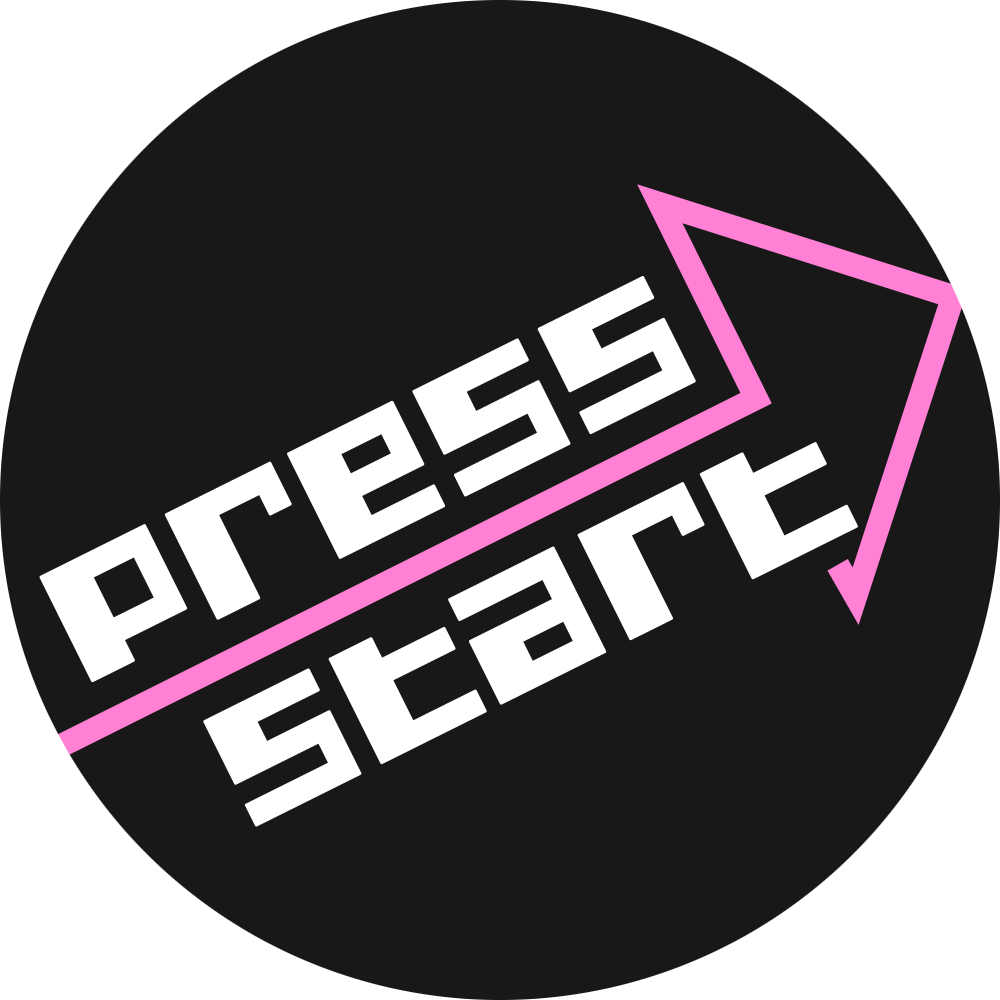I used Plex for my home media for almost a year, then it stopped playing nice for reasons I gave up on diagnosing. While looking at alternatives, I found Jellyfin which is much more responsive, IMO, and the UI is much nicer as well.
It gets relegated to playing Fraggle Rock and Bluey on repeat for my kiddo these days, but I am absolutely in love with the software.
What are some other FOSS gems that are a better experience UX/UI-wise than their proprietary counterparts?
EDIT: Autocorrect turned something into “smaller” instead of what I meant it to be when I wrote this post, and I can’t remember what I meant for it to say so it got axed instead.
I want jellyfin, but the number of devices I’d have to manually setup around my house, tvs etc, is daunting and terrifying.
Blender. I feel pretty confident in saying that there is simply nothing like it in the commercial world. Its feature set is unreal; its like the swiss army knife of 3D modelling programs. I can’t say enough good things about Blender. It has replaced so many secondary programs in my workflow and is slowly dominating to become my entire workflow.
It used to suck to use in the late 2010s and then work was done to overhaul its space-shuttle cockpit interface, and now it actually feels concise and usable. I freaking love blender now. Big time blender fanboy right here.
Im always amazed at the amount of stuff Blender can do. It’s just so nice to be able to have software that lets you learn a useful skill that isnt behind a paywall or crazy license
I like to mess around with architectural CAD as a hobby, with the likes of Revit and Chief Architect, but I ain’t about sink enterprise levels of money for something I play with.
There’s always the open seas. That said, if you make money with something, pay for it, either via their revenue channels or donations to FOSS projects.
Just a warning when it comes to this type of software, in some cases like solidworks they will catch you and sue you for every dime.
I’ve heard that too, Autodesk doesn’t fuck around either. I keep any no-no software firewalled to hell and looped on localhost as best I can.
every few years i make a donut, it gets easier every time. Someday i’ll do something creative with it. Donut tutorial guy, if you’re out there, gday mate.
every few years i make a donut, it gets easier every time
Deep
Make a bagel next time. I believe in you.
As someone who gave up on Blender back in the 2010’s, I may need to revisit it.
They had a big push and update a few years back focusing on redoing the UI to make it more friendly to beginners. Although I haven’t personally used it a ton since then.
You definitely should, it is lightyears improved
It’s like the opposite of GIMP
And LMMS
A lightyear is a distance. Not a time.
Isn’t distance more suitable to describe an improvement than time? Don’t find anything wrong with that comment.
“It is better by a mile” vs “It is better by three hours”
Good point. I guess it depends on the interpretation. If you consider that developments take time, be it developments in software, technology, research or whatever, then saying something like “this software is years ahead of its time” sounds appropriate.
That’s how I read the comment. Additionally, given that it’s a common misconception that a lightyear describes a timespan, I felt the urge to be a smartass.
But you typically can’t influence time, while you can influence distance travelled. The faster car will get you further in the same time than a slower car. So IMO distance (travelled) is the better measurement.
To continue dissecting this, since I don’t have anything better to do right now:
What you do in that time depends. If you drive a faster car, sure, you’ll travel a further distance in less time than a slower car. If you use the same car however, the distance is as meaningful as the time for a symbol of progress. Since technological and scientific advancements in general don’t depend on people driving around in cars, but on people investing a lot of time and effort, I would prefer time as a measurement.
Usually, if we think about scientific, technological or cultural progress, we tend to judge based on time and not on distance. For example, consider some indigenous cultures which live their lifes isolated from the rest of the world. They are often compared to primitive “stoneage”-like cultures. We specifically use time as a measure.
However, I am not completely opposed to agreeing with you. I think it depends on what you want to emphasize. A distance can be useful for reflecting some aspects in which, e.g., a software, takes the lead compared to alternatives. Then again, time would be better suited to highlight very innovative features or significant futuristic advancements which may have groundbreaking qualities.
And if someone is already using “lightyears” as a measure, I think that’s already an amount of improvement which deserves a time-based phrasing.
Anyway, I see good points for both and I am no longer interested in this. Take it or leave it. I don’t care anymore.
Your argument is leaps and bounds ahead 😎
I used 3dsmax until I started uni and was forced to use Maya. Then trying to learn zbrush and mudbox. And then marmoset, and then early 2000s blender, it was too much for my poor brain to wrap around so many different UIs with so many different workflows.
Then my uni lied to me about how much I’d learn, then about overseas exchange, and then about getting a work placement (they just gave me an email address for a modeller who didn’t respond) and left me with no useful skills so I gave up completely.
I have so much wasted useless 15 year old 3d knowledge in my brain.
i tried to explore it in the 10s but it seemed designed to be complicated and hard to learn. every obvious starting step required like 5 non obvious clicks
Just found this I wonder if it works on Linux. Not quite as cheap, but it’s getting there!Scratch that, it apparently only does 720p.Pulsar is better than VS Code for JavaScript.
VLC is obviously the best media player, I can’t think of one I’ve used that comes close ever, either in ease of use(hotkeys) or functionality.
Audacity is such a simple yet comprehensively functional audio editor.
OBS is a very simple video recording software that works so well.
I personally prefer mpv, but that’s still FOSS. Nothing in the proprietary world is comparable to these two.
I used MPV for a while, seemed a little bare bones to me compared to VLC? Maybe that’s just because I was more familiar with VLC and know how to do most things with it already.
I went from winamp to VLC and then tried probably everything and then went back to VLC
I had the same experience when I first tried mpv. Went back to VLC.
I tried mpv again years later due to some annoying bug in VLC, and finally made some efforts to customize the shortcuts to my liking (most were fine, just added a couple extra ones like k for pause) and installed some plugins (like mpv-sub-select and skip-intro). Now I can’t be satisfied with anything else.
It’s kinda like Neovim in that sense. Super customizable and integrates with everything.
OBS works well, but it’s anything but simple. You basically have to reconfigure it every time you want to record something with a different window size. It’s a pain in the ass.
I don’t think I’ve had to reconfigure mine for different window sizes… of course, I don’t typically record individual windows I record a screen.
If I may ask, what do you use OBS for that you have to record individual windows that are sized differently each time?
Just general recording snippets of things to send to people. A non-maximized window is a different size from a maximimized window, which is also a different size from a full screen window.
Right, right. I think it’s a little unfair to say OBS isn’t simple in that regard, though, as recording small snippets of screens isn’t really what it’s targeted towards. It’s more of a content streaming/recording software, IMO. I honestly don’t know what I would use if I needed to regularly record differently sized small portions of my screen to send to people.
I think PotPlayer is a lot better than VLC— although it’s a little weird out-of-the-box, so you have to change a few of its many, many customizable settings.
I can’t really think of a customizable option I’ve wanted that VLC doesn’t have, what do you mean by better?
I’m too sleepy to list them, but check it out. Right-click and check out the options, it’s like an explosion xD
DWM, Newsboat, MPV, NSXIV
I don’t think the lump of abbreviations here will help many people
Desktop window manager, miles per velociraptor, Ninal Santansy 14
Dark Wandering Menagerie, Minimum partial varnish, nobody said xylophone in Vermont
Department of Wide Movers, Mechanised Papal Vocalizer, Neverending Sandwich XIV
Disassembly With Malice, Multithreaded Pi Visualiser, and NASA Space eXplorer 4
I’m going to use Nobody Said Xylophone in Vermont as a secret passphrase.
“secret”
Yeah, right.
newsboat and mpv are awesome. How is nsxiv better than sxiv?
sxiv is no longer mantained (AFAIK)
I wouldn’t know any differences, as I wasn’t using Linux back when sxiv stopped being developed.
I use Gimp and Krita, ShareX also with the complementary Extension, integrated with FileCoffee, old but gold VLC media player, PicView image viewer/editor (IMO best alternative to IrfanView), ProtonVPN (yes, it’s OpenSource), Crow Translate, FreeTube, Portmaster, Cherry Tree editor, apart of some games (The Dark Mod, Armagetron Advanced, Scorched 3D, and some more)
Here is my opinion on some FOSS software. PS, I’m too old to give a shit about team mentality, I just want stuff to work. Also, my motivation for liking FOSS is not so much “free”, but rather “unencumbered and unrestricted shared human technology and knowledge”.
- GNOME, for the hate it gets, it comes close to getting everything right. I’d give it a 95/100 score. Windows a 30/100, and MacOS a 35/100. No verdict/comment on KDE as I haven’t used it. I have good reasons for disliking W10/W11 and separate ones for MacOS. As desktop environments, they are both shit for each their own reasons.
- Blender. 3D/Scultping/Drawing/Video Editing. Aside from Linux kernel, the most impressive and well managed FOSS project there is. I grew up with pirated 3dsmax, and what a dream it would be to grow up today with Blender as it is.
- Linux as a OS kernel. One can argue about the desktop market share, but people don’t know better. They think the software that runs on it defines it. But, there is a reason why 100% of top 500 supercomputers in this world run on Linux. I’d also mention the Arch/AUR community. Doesn’t matter if you use Arch or not, arch/aur wiki is a goldmine.
- Godot: 2D game engine. As a 3d game engine, it’s not nearly as good as the non-FOSS competition.
- Firefox: If it wasn’t for Firefox, I don’t know what I would do. I don’t trust chrome one single bit.
- Alacrity terminal: I’m sure there are plenty great FOSS terminal emulators, but the built in ones for MacOS and Windows are garbage.
- Prusa Slicer: I think this one is as good as the commercial counterparts for FDM G-code generation.
- VLC. Mixed feelings about this one, as I think it’s UI is lacking, but since it plays almost everything the UX ends up being great.
- LibreOffice Writer. Perhaps debatable. But the fact that you can trust LibreOffice to respect and adhere to the OpenDocumentFormat, and equally trust Microsoft Word to deliberately not do so in subtle ways, LibreOffice Writer is ultimately the better software IMHO.
Projects I wish had an edge over commercial proprietary software:
- Gimp. It just isn’t as good, even if you get used to it. Some things, of course, it can do much better (e.g the G’Mic QT filter pack). The lack of non-destructive work flows is the key part that is missing.
- FreeCAD. It’s good, and you can do wonders with it, but oh so rough compared to onshape/Fusion/etc.
- Darktable. Not as good as commercial counterparts like Lightroom.
- Kdenlive. Not as good as Davinci Resolve, or the adobe counterparts.
- LMMS: Not as good as most commercial DAWs.
- Krita: This one is actually not too far away from being best in class. I still suspect photoshop and has an edge
- InkScape: A “best for some vector things but not all”-kinda thing. It’s FOSS nature makes it the defacto vector editing software for certain kind of makers. But as a graphical vector editing suite, adobe’s stuff is just much more solid.
Mobile stuff that I think is better than the counterpart, or at least so good that I don’t care if there is a counterpart
- Tuner: https://f-droid.org/packages/de.moekadu.tuner/ It just does what it is supposed to. There are hundreds of these on the play store, with ads or paid. There is no need for it.
- Aegis Authenticator: https://f-droid.org/en/packages/com.beemdevelopment.aegis/ For handling 2FA keys.
- Gallery: https://f-droid.org/en/packages/com.simplemobiletools.gallery.pro/
- Telegram: Sort of FOSS. Aside from security concerns whereby Signal would win out, it’s still the best UX. Compared to Messenger and Whats’App, not even a contest.
Thanks for the praise! We’re not on Lemmy too much, but someone in the Core Team caught site of this and shared it with me. If you’re wondering who I am: github
Jellyfin can’t utilize local network storage… How is that a useful tool for a HOME MEDIA SERVER???It looks as though there are methods for utilizing network storage solutions. This has not always been the case with Jellyfin but either way I was dead wrong. My bad folks.
The thing I find hard to convey is that FLOSS software is superior to proprietary software for many reasons, most of which are non-technical: FLOSS software is superior to proprietary software if it isn’t spying on you, if it’s governance is collective, if it’s not build to make you pay for things that should be free, if it lets you decide where your data goes, etc…
we’re often missing the point when we attempt at side-by-side comparison of FLOSS and proprietary software… It’s usually one-dimentional, and playing on our opponent’s field: these companies racketing their users based on rent-based exploitative business models will always have more resources than independant developpers to improve “UX/UI”… so I think this must not be the only prism through which reading these things.
VLC absolutely wrecked Windows Media Player. Firefox was the same with IE.
I really don’t miss trying to find codec packs to install. Good riddance.
Did you know that MS now charges for you to play some codecs with windows media player?
Unless something has changed recently, that’s not exactly true. They charge 99c for the distribution of it through the windows store (or whatever it’s called) but you can install them the traditional way no problem
I think it’s still dumb but it’s a distinction worth making. I think the description even links the website where you can download it
You can even install the free oem istaller in the windows store thats hidden iirc.
I tried that recently on a few machines and it didn’t work.
Same.
looked it up, you’re right. The payment is for the codec out itself which is normally done by GPU companies and often can be downloaded for free.
My bad for not reading text on a window from Windows with a “$ please”.
So you admit you didn’t read it, but then you happily go around spreading misinformation?
Why do you guys do that?
People have been asking this same question since the existence of the internet.
You can still pay 1$ for playing a codec in WMP. It’s still 90% correct.
I read that news. It was an out of season April Fools’ joke, right?
They’re wrong, see my reply above
Windows Media Player wrecked its own dumb self. It was good right up to Windows 2000 and Windows ME (which is a whole other kettle of fish), and then it got bloated, unintuitive and it kept nagging you for random shit. VLC is a great app, don’t get me wrong, the bar was not all that high is what I’m saying.
I have still yet to see any other media library handle so many tens of thousands of audio files of varying encoding & naming conventions, so smoothly; “Media Monkey” etc were oft recommended but never once up to the task. Until just a few years ago, it was remarkably convenient for ripping a CD, too; correct metadata & all.
For a short while, WMP was to music files, as Calibre is to ebooks.
deleted by creator
What do you feel makes it better?
deleted by creator
Better auto-handling of subtitles, including automatically downloading them
VLC can do that too as far as I know. I haven’t used it in a while since I use the default media player on Arch and MXExplorer on Android and for my Movies/Series I use Jellyfin
The scanner app on Linux is far better than Windows: auto preview white scanning, auto pdf creation WITH multiple pages.
The fact that no one in these comments, seems to have had a really decent FOSS IDE \ engine to recommend for 3D game development, makes me sad.
Like, Unreal is pretty great, but it’s not FOSS (& won’t run on any of my machines anyway).
Is there anything FOSS that really streamlines 3D game development?
(I want to say Vulkan but I feel like that’s some sort of perennial “gotcha!” joke, at this point?)Calibre vs… em something that’s not calibre.
I’m honest not sure what I would use instead, but it would be hard to replace.
Uhh… yeah, I’m stumped trying to think of the proprietary alternative to Calibre, too. I don’t think there is one in the mainstream? Everywhere I look, the only recommendation is Calibre.
Honestly I hated Calibre. The worst part was how it just couldn’t render some books properly, and there was no way to zoom many of them, even via CSS. Readability is #1 priority, but Calibre was absolutely broken for a lot of that.
I ended up using software that could made thumbnails from PDF, CBR, CBZ, and ePUB, then I used Sumatra for all of it.
It never occurred to me, that people would use calibre to read books. I only use it to move books between devices (kindle →PC ⟷ smartphone) and to strip DRM. The stripping of DRM is actually my primary motivator to use calibre.
I see.
Reader is very much a tertiary function of Calibre. It’s an ebook manager and converter first, an editor second.
I see.
Readability is #1 priority
That’s arguable. Calibre is a database manager, not a reader. It has a reader, sure. But it’s an afterthought when compared to the rest of the program. The program is primarily aimed at people who have a reader and want to be able to manage their library. It’s days ahead of literally any other program when it comes to things like metadata management or managing multiple devices.
It’s sort of like saying that Notepad++ is bad at making Word documents. Like sure, it may be able to edit Word docs, but that isn’t what it’s primarily designed for.
That’s not what I was told on the multiple sites that I stumbled on when searching for an all-purpose digital book reader. But you’re probably right, and they’re probably wrong.
I’m curious what features that Calibre was missing for reading that you are looking for specifically? I know that it’s got some pretty standard features built in, though I’ve never used it to read, only to check files before sending to eReader.
It’s more that it’s clunky, bugged, and unusable than “it’s missing features”. It tries to rectify this with a very terrible and still often unusable CSS editor

















